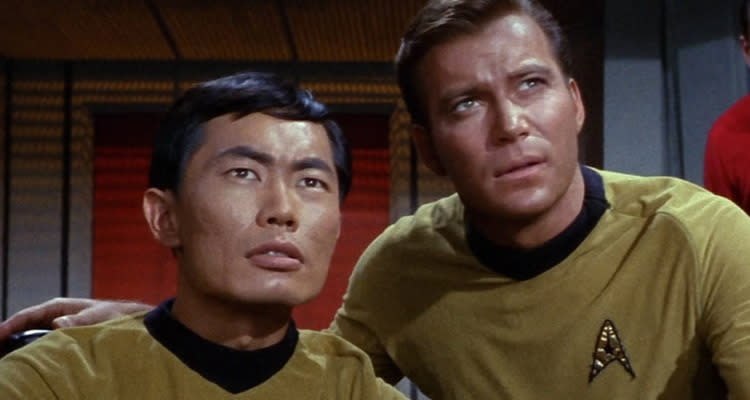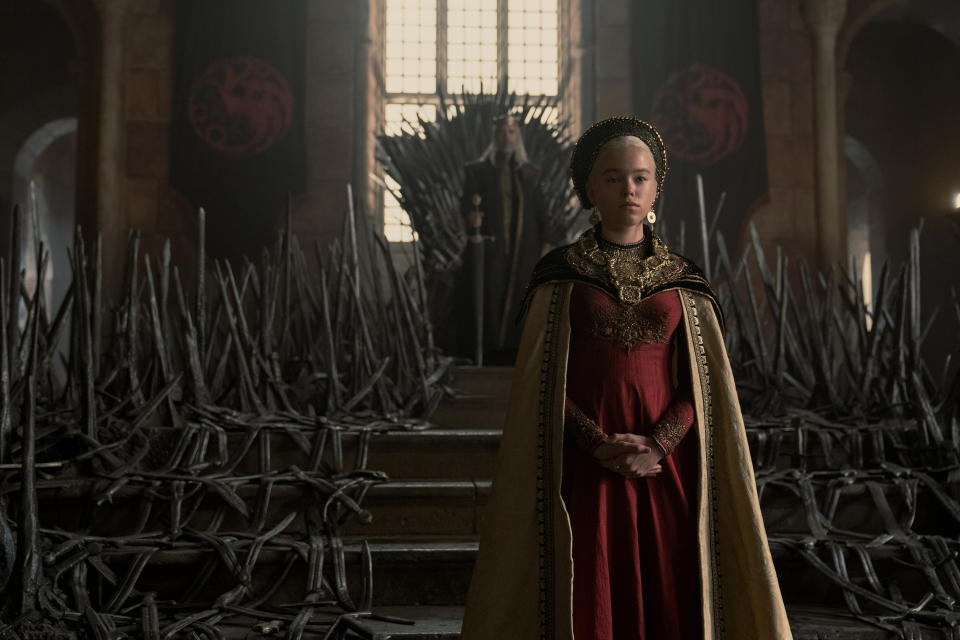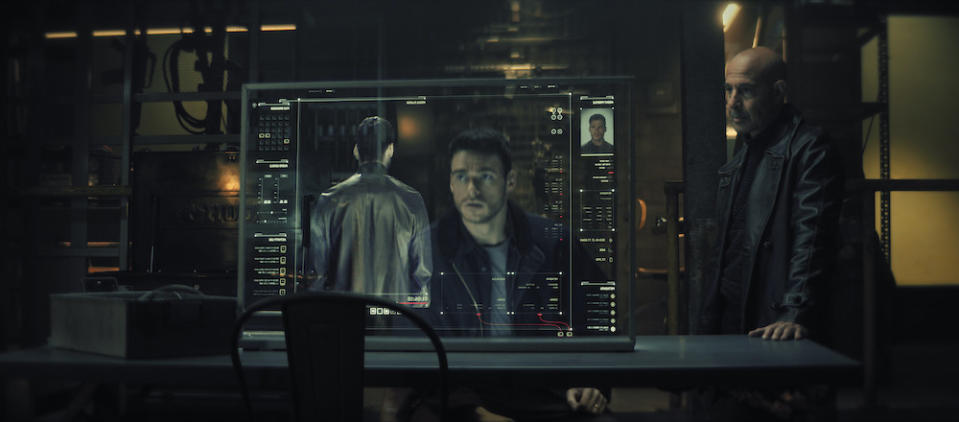The ‘Citadel’ Effect: TV Enters a New Age of Franchises… or Flops

Not long ago, a major streaming service released an expensive, action-packed series meant to be the foundation of a new franchise. And the service needed a franchise. Competitors were attracting millions of subscribers with interconnected universes built from established intellectual properties, and this streamer wasn’t attached to a legacy brand with a library full of iconic audience favorites. So, it had to build them from scratch (or buy them), and this new program was their latest oh-so-pricey attempt to do just that.
On paper, it looked like a safe bet. There were dozens of central characters and a story that spanned decades. There was action and lore, families at war, and friends turned enemies. Hundreds of millions went into producing the debut season, with reshoots and creative turnover all given the go-ahead to ensure this franchise starter would catch fire.
More from IndieWire
Only it didn’t. Netflix’s “Jupiter’s Legacy” was snuffed out by critical scorn and audience indifference. Within a month of release, the cornerstone of the streaming service’s Millarverse was canceled.
Executives at Amazon Studios don’t have those same concerns, but “Citadel” — the expensive, action-packed series meant to be the foundation of a new franchise — has more in common with “Jupiter’s Legacy” than anyone would hope. Reviews are mixed, at best. Buzz is minimal, with audience demand for “Citadel” ranking between “The Other Two” and “Beef.” The budget, reportedly, is massive — much bigger than the HBO Max comedy and Netflix limited series.
For an industry growing more risk-averse by the day, “Citadel” is an incredible risk.
The twisty thriller also ties together a pair of troubling trends. Streamers like Prime Video, Paramount+, and Disney+, as well as networks like AMC and what’s left of Showtime, are doubling down on franchises in the hope their built-in audiences and broad appeal will help each service survive the streaming wars. At the same time, the industry is finally climbing down from “peak TV.” Fewer scripted originals are expected in the coming years, just as there’s a growing emphasis on franchises.
Technically, “Citadel” is an original idea and a franchise. The espionage thriller was created by Josh Appelbaum, Bryan Oh, and David Weil, with a producing hand from “Avengers: Endgame” directors Joe and Anthony Russo. Unlike “Jupiter’s Legacy,” which was based on Mark Millar’s comic book series, “Citadel” is not an I.P. play. It’s both an original series and a bald-faced ploy for mass appeal. But is this generic spy show the type of “original” idea we can expect studios to invest in moving forward? Are smaller standalone series about to become few and far between, despite serving as TV’s core business for the better part of a century?
In other words: Is “Citadel” a glimpse at TV’s future, or merely a repeat of the recent past?

TV Has Always Been Franchise-Friendly
Today, franchises are typically associated with spectacle-driven blockbusters, but television has long been in the business of extending stories.
“You could argue television itself is bound up in the logics of franchising to the extent that you make a pilot, and that is the prototype for the thing that you’re going to [keep growing],” Dr. Derek Johnson, a professor at the University of Wisconsin-Madison who authored a book on media franchising, said. “Episode after episode, season after season — it’s serial modes of storytelling. Franchising is just where we say, ‘Yeah, there’s other ways we can keep making more of this.’”
Dr. Lynn Spigel — who teaches TV history at Northwestern University and is literally writing the book on television for Oxford University Press (simply titled, “Television”) — said before there were spinoffs and sequels, network executives first needed to introduce TV genres.
“At that point, it wasn’t even clear what a genre was for TV,” Spigel said. “The networks have historically tried to be risk-averse, [so] if you know it’s a sitcom, you’re going to laugh. If you know it’s a Western, you’re going to have action, adventure. If you know it’s horror, you’re going to be scared.”
Mitigating risk has been a major focus of TV programming from the start. Executives want to give the people what they want, and they don’t want to lose their jobs by backing something they don’t. Spinning off hit series into new series of their own was just the next logical step in the process.
“It’s about refining risk aversion,” Spigel said. “The earliest ones were like ‘Andy Griffith’ to ‘Gomer Pyle,’ but [there’s also] ‘Cheers’ to ‘Frasier,’ or the more recent ‘Better Call Saul’ from ‘Breaking Bad.’ Clearly, those invite audiences to continue with a character in a new framework.”
Franchises have become entrenched in television. “Star Trek” evolved into “The Next Generation” and “Deep Space Nine” before launching modern hits in “Discovery” and “Strange New Worlds.” “All in the Family” produced beloved tie-ins like “Maude,” “The Jeffersons,” and “Archie Bunker’s Place.” Norman Lear’s dramatic counterpart in franchising must be Dick Wolf, who expanded “Law & Order” into a half-dozen spinoffs like “SVU,” “Criminal Intent,” and “Organized Crime,” before doing the same thing with “Chicago Fire” (“Chicago P.D.,” “Med,” and “Justice”) and “FBI” (“FBI: Most Wanted” and “International”).
All these franchises thrived for different reasons. Dick Wolf’s crime procedurals were more formula-based, relying on structure and tone to link each new “Law & Order” iteration. Sitcoms like “All in the Family” were able to build new shows around characters like Maude Findlay and George Jefferson, while “Star Trek” relied on its massive universe to always provide unknown galaxies for Starfleet officers to explore.
That’s not to say building a TV franchise is as easy as identifying common storytelling mechanics. Amid the potential within a replicable structure, dynamic characters, and vast world-building, there are thematic elements to maintain, key talent to hire, and a nearly infinite number of details that have to be handled just right. What makes or breaks a franchise is often debated long after its success or failure.
“I think authenticity is a word that gets tossed around a lot when it comes to franchises,” Tom Nunan, founder of The Industry Way and a former network and studio president, said. “[With a franchise,] the viewer is being guaranteed a certain authentic extension of the mothership — of the core brand. […] But there’s no one formula.”
Nunan said “All in the Family” spinoffs maintained the franchise’s authenticity despite being “radically different” from the original series. “They were all high-quality comedies, but the characters and tone of the shows themselves were quite different from one another. [Spinoffs] have to have their own heartbeats — their own identity and integrity — so they can perform under their own steam.”

From Good Business to the Only Business in Town
Lately, steam seems to be a secondary concern. Franchises are everywhere, and most don’t stem from exciting new ideas. Instead, they flow from legacy content.
“’Law & Order’ was based on actual prosecutors and policemen that worked in New York City,” Nunan said. “[Wolf] was inspired by those figures, but these were original ideas. The business has transformed into what we call IP-based ideas, where things spin off from those.”
I.P. has been the name of the game for years. It started as a way for streamers to make a name for themselves — mining studio libraries for fresh “content” — and has since grown into standard practice across Hollywood. Paramount revived the “Star Trek” TV franchise for what would become Paramount+. Showtime, once a bastion for creativity, is following its parent company’s lead with plans for a “Dexter” universe, while AMC is still betting big on “The Walking Dead” as well as Anne Rice’s library of books. Netflix has “The Witcher” and “Wednesday,” Hulu is extending “The Handmaid’s Tale” into “The Testaments,” and even HBO — long averse to sequels and spinoffs — is wading through Westeros for more “Game of Thrones” following “House of the Dragon’s” heated reception.
And that’s without mentioning three of modern entertainment’s marquee franchises — DC, Marvel, and “Star Wars” — which are full steam ahead at Max and Disney+, respectively.
Still, none of the aforementioned franchises were based on ideas from the last decade. “Star Trek” is nearly 60 years old. “The Witcher,” “Game of Thrones,” and “Handmaid’s Tale” are sourced from books that are at least 30 years old. Showtime has the newest franchise — and “Dexter” first aired in 2006. (Though it is planning another universe from a more recent release: “Billions,” which will soon launch “Millions” and “Trillions.”)
“What are the new franchises that have been created in the last 10 to 15 years that have really worked and connected with audiences?” Johnson said. “I’m not saying there aren’t any, but the franchises that [tend to] succeed are franchises with decades of history behind them.”
Arguably, “Yellowstone” marks the biggest franchise launch of the last five years. Kevin Costner’s Western was the most-watched scripted series in 2022, and its prequels — “1883” and “1923” — were considered successful extensions.
But “Yellowstone” wasn’t conceived as a franchise. When it premiered on Paramount Network in June 2018, Taylor Sheridan’s first TV show was just another movie-star-led antihero drama. Now, Paramount+ depends on the Taylorverse even more than “Star Trek,” where “Yellowstone” tie-ins and Sheridan’s other creations (like “Mayor of Kingstown” and “Tulsa King”) drive subscriber sign-ups.
“Yellowstone” represents a traditional way to build franchises: Paramount developed a new show, that show was a hit, and they aggressively pursued expansion. Dating back to “The Andy Griffith Show” (at least) and running through today’s franchise mania, that’s largely how it’s been done.
It’s also what makes “Citadel” such an intriguing case study.

When It Comes to Franchises: If It Ain’t Broke, Try to Fix It Anyway
In the early days of Prime Video, Amazon stuck with tradition — and it worked. “Bosch” became one of the streamer’s early success stories, and the spinoff, “Bosch Legacy,” just garnered a third-season renewal. “The Boys” began as a standalone adaptation of the comic book series, and three seasons later, there are animated and live-action spinoffs. Chris Pratt’s “The Terminal List” survived scathing reviews to snag its own spinoff for Taylor Kitsch.
Still, not every hit has been franchised. “Jack Ryan” has pulled in big viewership numbers, but any spinoffs remain in development. “Reacher,” another action smash adapted from a popular book series, is only planning a second season. Even with unprecedented financial investment and beloved books to draw from, Amazon has yet to greenlight additional Middle Earth-set spinoffs for “Lord of the Rings,” preferring to see how the mothership series, “The Rings of Power,” performs in Season 2.
But “Citadel” represents a shift. Unlike “Bosch,” “The Boys,” and “Lord of the Rings,” “Citadel” isn’t based on pre-existing I.P. That makes its reportedly $300-million-plus budget a sizable risk on its own, and instead of waiting for the original series to prove itself in the marketplace, Amazon Studios initially committed to the English-language mothership (out now) and two local-language spinoffs set in Italy and India (coming soon).
The strategy has drawn skepticism from the industry, especially after multiple reports of behind-the-scenes turmoil and cost overruns. Sources have claimed it’s Amazon’s second most-expensive production to date and said “’Citadel’ never should have been made.”
Compared to how franchises have been built in the past, it’s hard to see “Citadel” as anything but a baffling risk. Why launch three shows without evidence anyone likes the first one? Why spend so much money on unproven I.P.? Why run before you can walk?
In part, because the market demands it. Franchises are popular, and while plenty of wannabes are canceled before reaching their initial ambitions — “Westworld,” “Altered Carbon,” “Cowboy Bebop,” “Raised by Wolves,” “Carnival Row,” “Marco Polo,” “Y: The Last Man,” and “Resident Evil,” just to name a few — data favors continued attempts.
“In short: yes, data shows audiences do flock to franchise fare, whether it’s on TV or at the movies,” Wade Payson-Denney, a spokesperson for Parrot Analytics, said. “Existing I.P. [is] a known quantity that is seen as a way to de-risk content investments, at a time when content spend is under more scrutiny than ever.”
Right now, avoiding risk is considered a greater imperative than ever. The Great Netflix Correction of 2021 has caused the market to reevaluate how to judge a streaming company’s value. Subscriber counts are suddenly taking a backseat to profit reports. After years of acting like there was always room for expansion, it’s becoming clearer than ever that not every company can win the streaming wars.
“Fear,” Nunan said. “That’s the main thing that you smell when you’re walking around LA these days. This incredible fear. There’s a vibe of musical chairs when it comes to the big media companies, that they’re not all going to be left seated in a safe place when the music stops.”
So what do they invest in? Safe bets. Proven hits. Intellectual property — and if you don’t have it, you make it. Streamers are actively looking for more of the same, much to the chagrin of writers with original ideas, and they want to control as much of the profits as possible, much to the chagrin of all writers. Whether you want to look at the lack of viewership transparency that restricts residual payments, the rise of “mini” rooms without fair wages, or concerns of A.I. replacing writers, Hollywood’s franchise mentality played its part in influencing the 2023 WGA strike.
“But this approach can be a self-fulfilling prophecy,” he said. “If there’s a glut of supply of I.P.-based content, then audiences may be drawn to that simply by default. Audiences may also be experiencing a similar dynamic to what studio heads consider when it comes to franchise series and movies: They know what they’re getting, and it’s a safe bet they will be entertained.”
Payson-Denney also said franchises have been more effective at retaining subscribers than attracting new customers, which brings us back to “Citadel.” “Citadel” isn’t a legacy product. It’s not another “Star Wars” show on a platform dedicated to “Star Wars” fans. It’s an original series, and maybe — rather than only adding risk — that’s to its advantage.

“A Mortal Blow to Original Ideas”
Television executives may need to be risk-averse, but television also tends to reward creative risks. Original ideas have repeatedly won the day, from “I Love Lucy” to “Cheers,” “The X-Files” to “The Sopranos,” “Mad Men” to “Breaking Bad,” and “This Is Us” to “Succession.” Creative gambles have formed the basis of so many network and streaming brand identities that it seems crazy many brands are only now betting on what they’ve already made.
The ”peak TV” era that made room for new ideas to thrive (at least as much as it led to the proliferation of prestige TV copycats) is finally coming to an end. Experts predict 2023 will see fewer scripted series than the prior year for the first time since at least 2009 (not counting 2020, when the pandemic forced a brief dip). At the same time, franchises are on the rise, alongside I.P. extensions and more familiar forms of storytelling.
“There’s no other way to feel about these trend lines than discouraged,” Nunan said. “I do think it signals maybe not the death of originality, but certainly a mortal blow to original ideas and original concepts.”
Nunan said that the buyers he talks to can’t get any traction on original dramas. Comedies and reality shows are still open to non-I.P., non-franchise plays, mainly because their budgets are lower, but that’s all.
“The financial stakes are just too high [in dramas], and the [executives] become understandably risk-averse because [they’re worried] the companies may not stay afloat,” he said.
Still, if you’re going to separate your service from all the others, taking a risk on something original may be the only path forward.
“[Franchises] always have to have an innovation or a twist to keep people interested, even though there’s so much repetition to draw in the audience,” Spigel said. “[The challenge is] constantly trying to create something different while remaining the same.”
“Citadel” could be described as exactly that: something different that still feels the same. Pessimists might argue (as plenty of critics have) that there’s no “there” there — the series has the auspices of a global franchise without a hook that distinguishes it from other, better iterations. But optimists may see universal appeal housed within an accessible, “original” package. If people like franchises and they like original ideas, “Citadel” has both.
“The thing that really stood out to me about the first episode is there’s a scene [where] Stanley Tucci is briefing Richard Madden,” Johnson said, “and he’s showing those screenshots of the maps of the different spy organizations. On that map, on the screen, is literally the franchise plan. Each of those nodes in the international [spy] network can be, at the story level, reflecting a potential node in our international network of production.”
In the scene, Tucci’s character points out where the “good” spies used to be stationed before the “bad” spies wiped them out. Soon, he and Madden’s character will discover not all the agents died, after all — maybe, just maybe, there are still Citadel spies in Italy and India who can lead their own Italian- and Indian-language spinoffs.
“It’s the same world that’s shaped by this particular institutional structure, but spinning off different characters within it,” Johnson said.
Whether that structure is enough to differentiate “Citadel” for the better is another story. Is it new enough to satisfy fans of the genre? Is it immersive enough to entice audiences to stick around for more seasons and additional series? And how will its ultimate success or failure impact an industry tied to franchises of any ilk?
“My concern is: What has to get displaced on a consumer’s viewing schedule for them to be able to have the time to invest in ‘Citadel’ as a franchise?” Johnson said. “Is there even space in consumers’ lives to absorb something that big? Maybe there is an opportunity when people are getting fatigued with Marvel and ‘Star Wars.’ But with that fatigue, are they looking for another franchise?”
Franchise fatigue is an oft-cited concern with lengthy series like the MCU, and while those movies and shows continue to draw crowds, their long-term reliability continues to be questioned.
“This hyper-reliance on I.P. and spinoffs is going to bite a lot of these companies in the ass,” Nunan said, “because there’s always a desire for the next new thing and the next bracing vision. An audience is as sophisticated as any big mogul, and the audience wants fresh, the audience wants new, and if you just spoon-feed them some formulaic extension of a somewhat successful brand, they’re going to see right through it.”
Sigel agrees, albeit with a more positive outlook overall.
“When reality TV started, everybody said, ‘That’s the end of scripted TV,’” she said. “But then, at a certain point, audiences did want to see good scripted TV. You have to come up with something different — if you produce franchise after franchise, it’s going to get boring after a while. So I don’t know if I’m totally pessimistic about it.”
“Citadel” doesn’t appear destined for the same fate as “Jupiter’s Legacy.” Prime Video has already ordered a second season, and the spinoffs remain on track. Still, those decisions were made before anyone knew if they wanted to watch more of “Citadel,” let alone multiple extensions. Less than a week after launch, the TV world’s focus is still fixed on “Succession,” “Yellowjackets,” and “Ted Lasso” — three original series that weren’t greenlit to spawn sequels, prequels, or spin-offs.
“As streamers both double down on franchise I.P. and begin to cut back on spending, out of nowhere original breakout hits may end up moving the needle on subscriber acquisition and audience attention more than existing franchise spinoffs themselves,” Payson-Denny at Parrot Analytics said.
The age of franchises may never end, but the smart money is that new ideas will, once again, become the next big thing.
Best of IndieWire
Quentin Tarantino's Favorite Movies: 57 Films the Director Wants You to See
The 20 Best Vampire Movies Ever Made, from 'The Lost Boys' to 'Bram Stoker's Dracula'
Where to Watch This Week's New Movies, from 'Dumb Money' to 'Cassandro'
Sign up for Indiewire's Newsletter. For the latest news, follow us on Facebook, Twitter, and Instagram.

